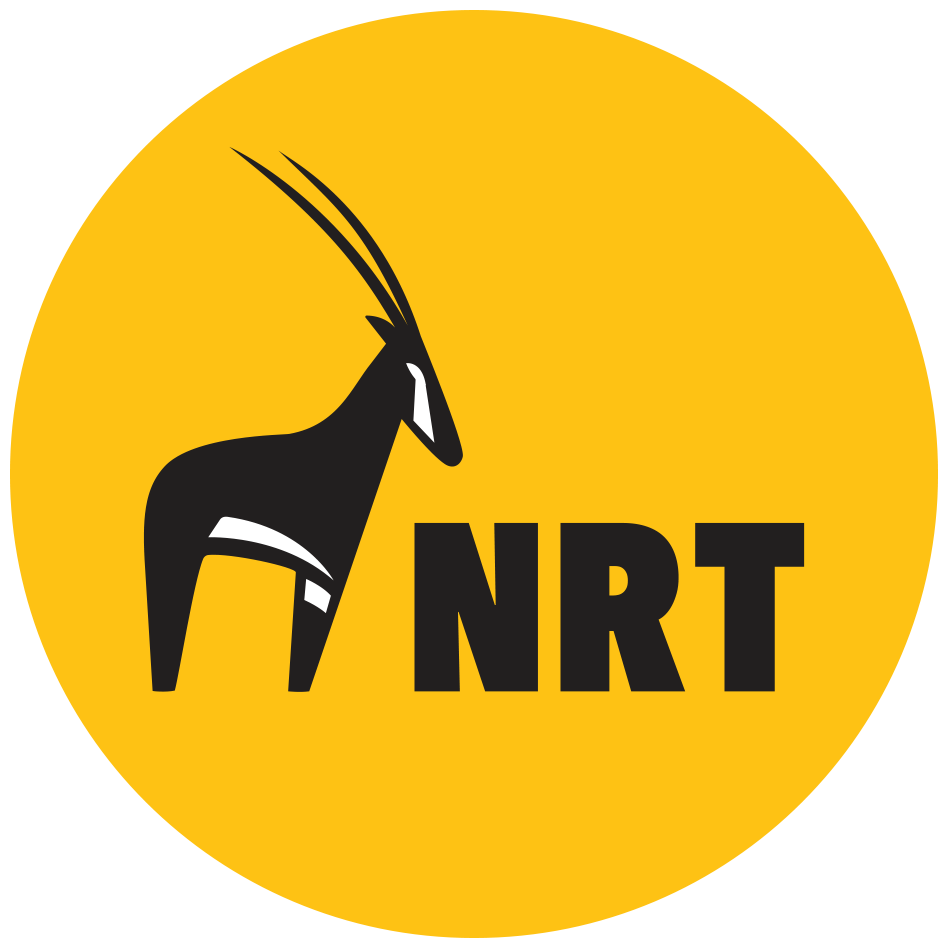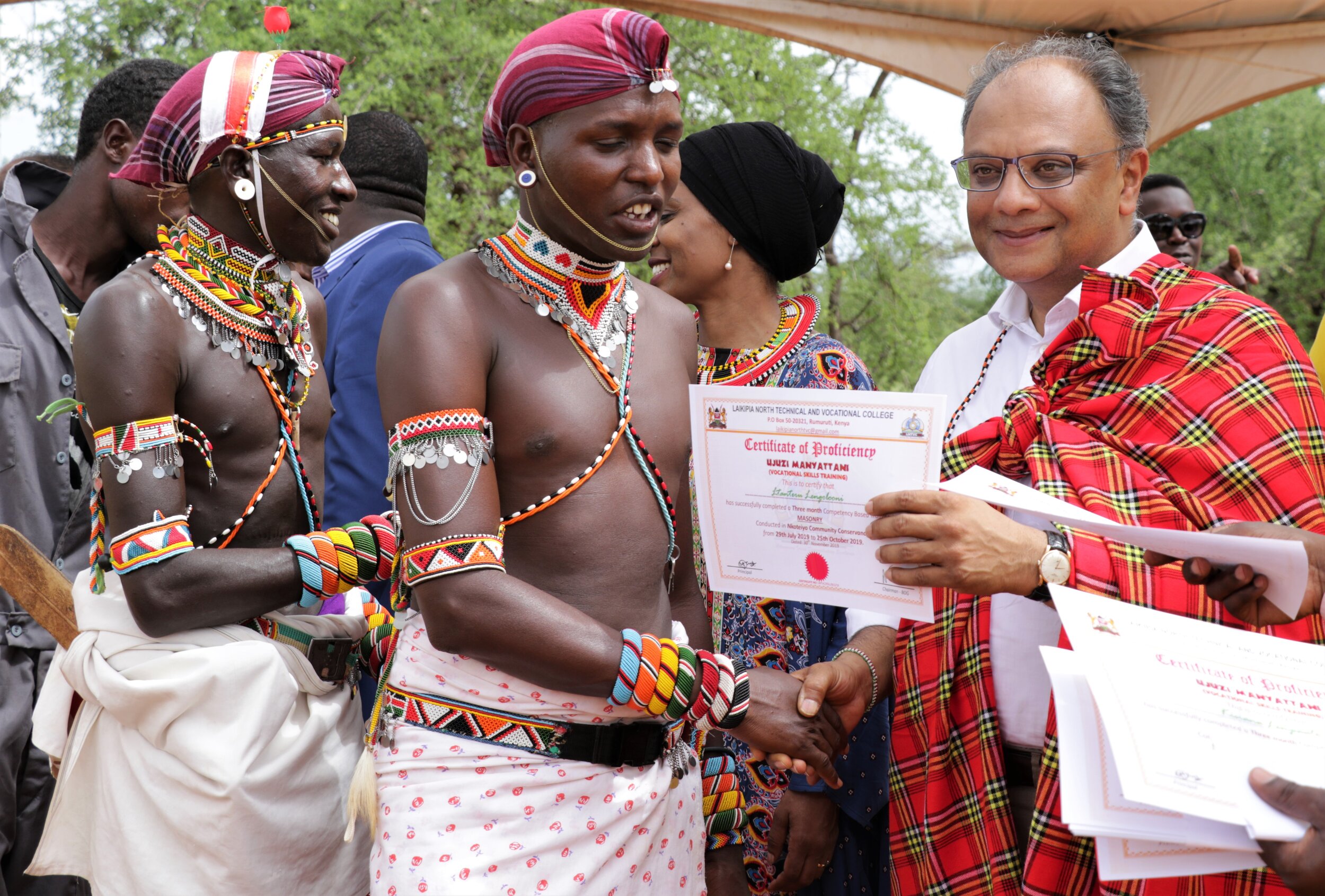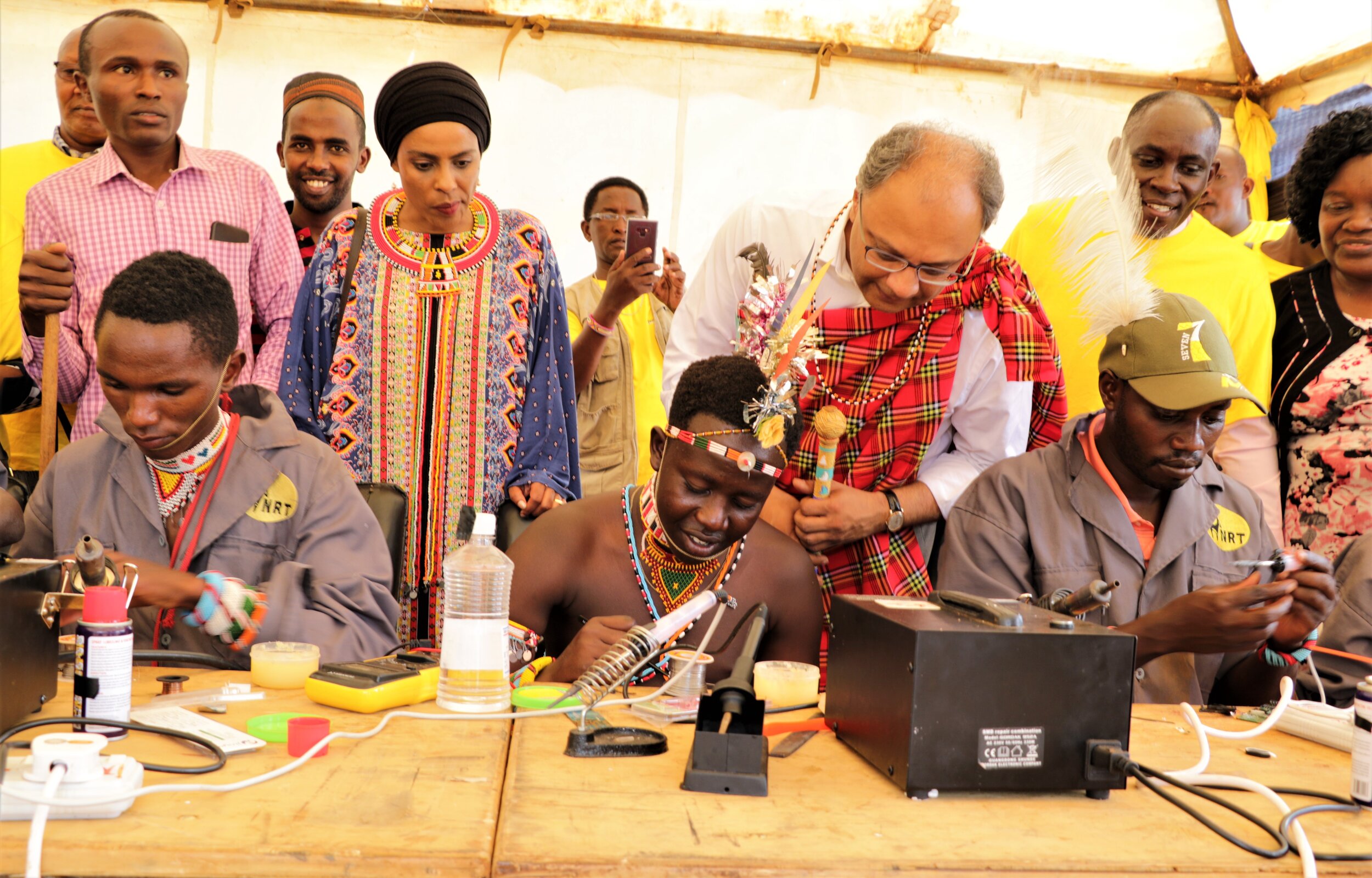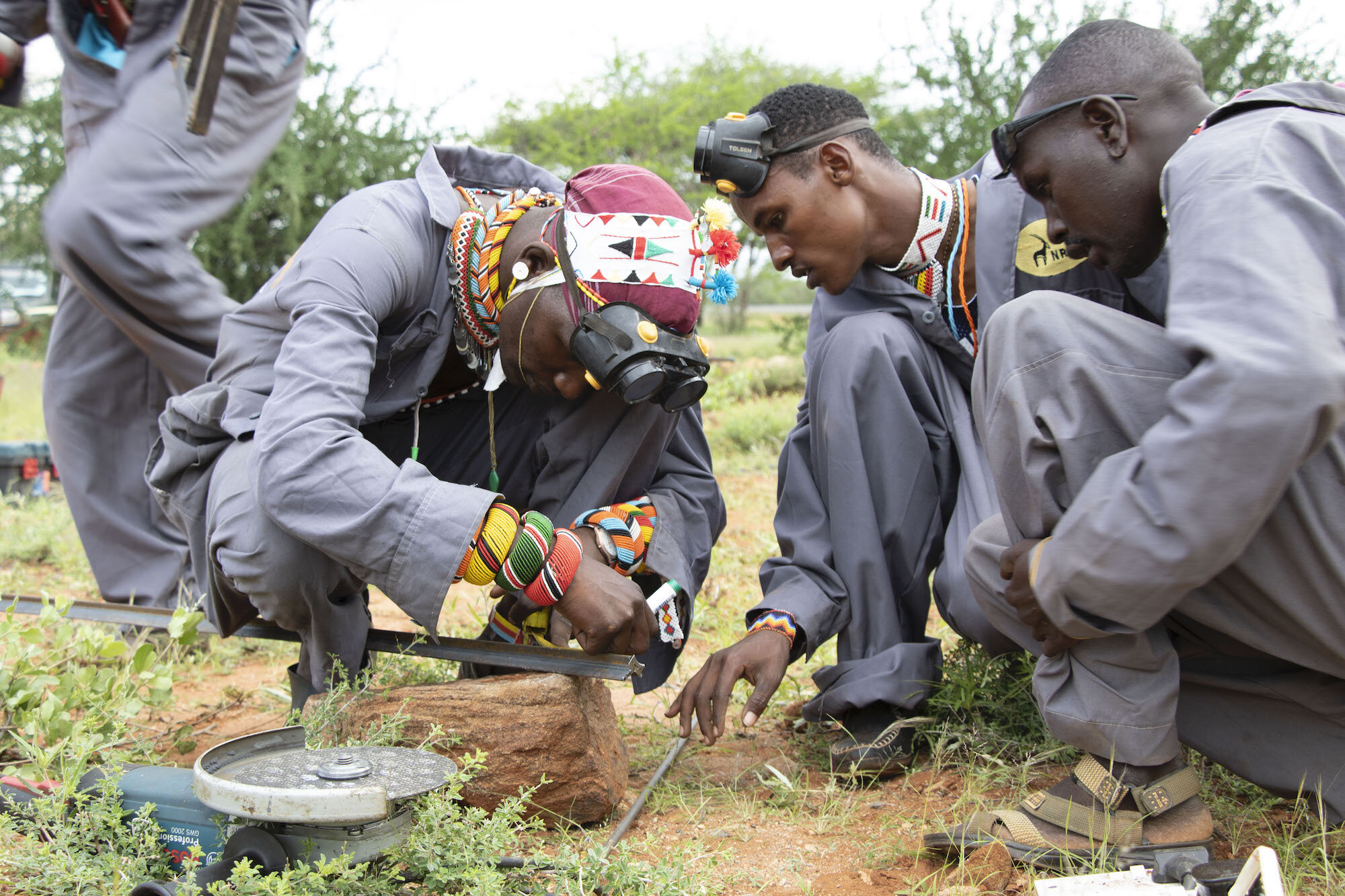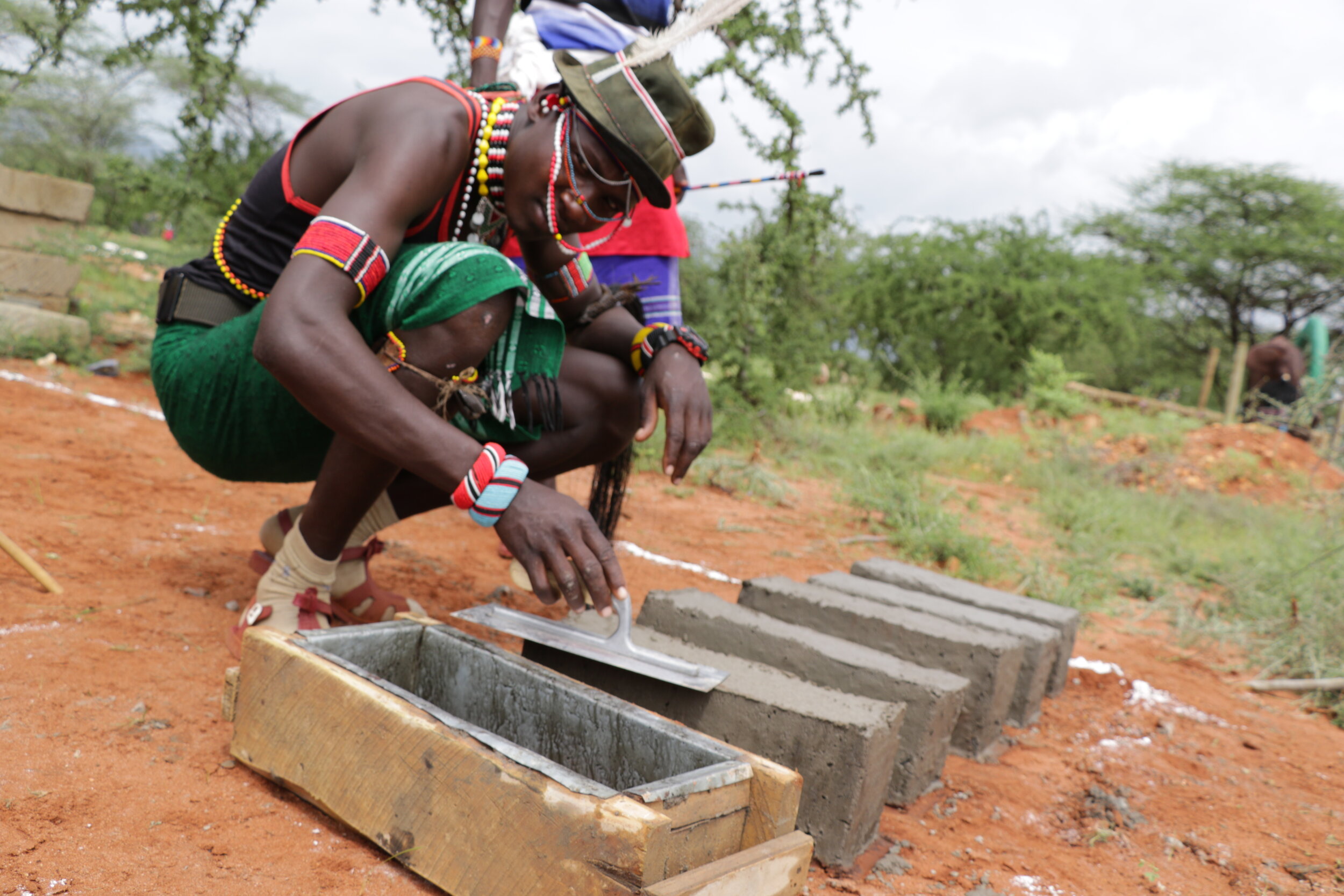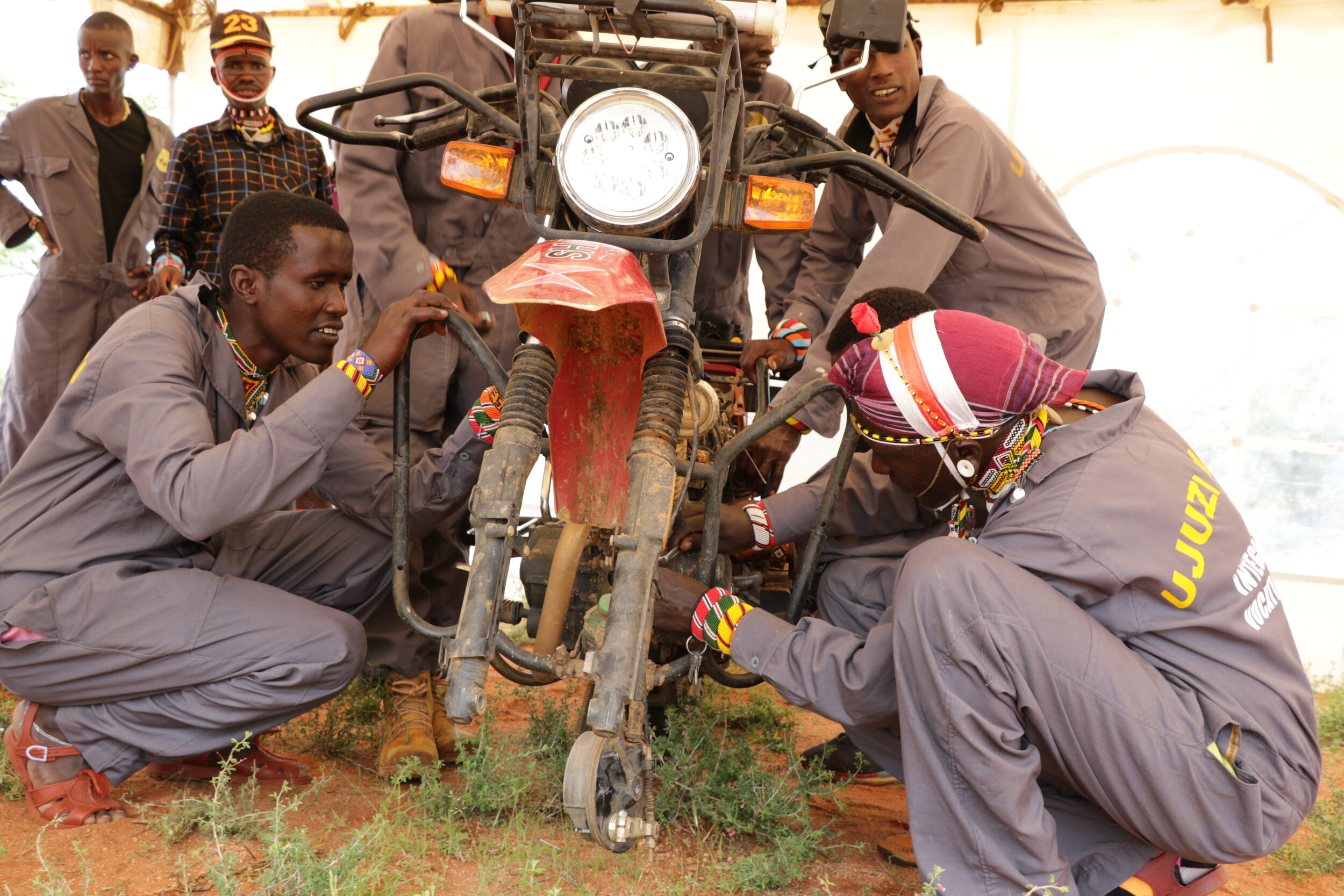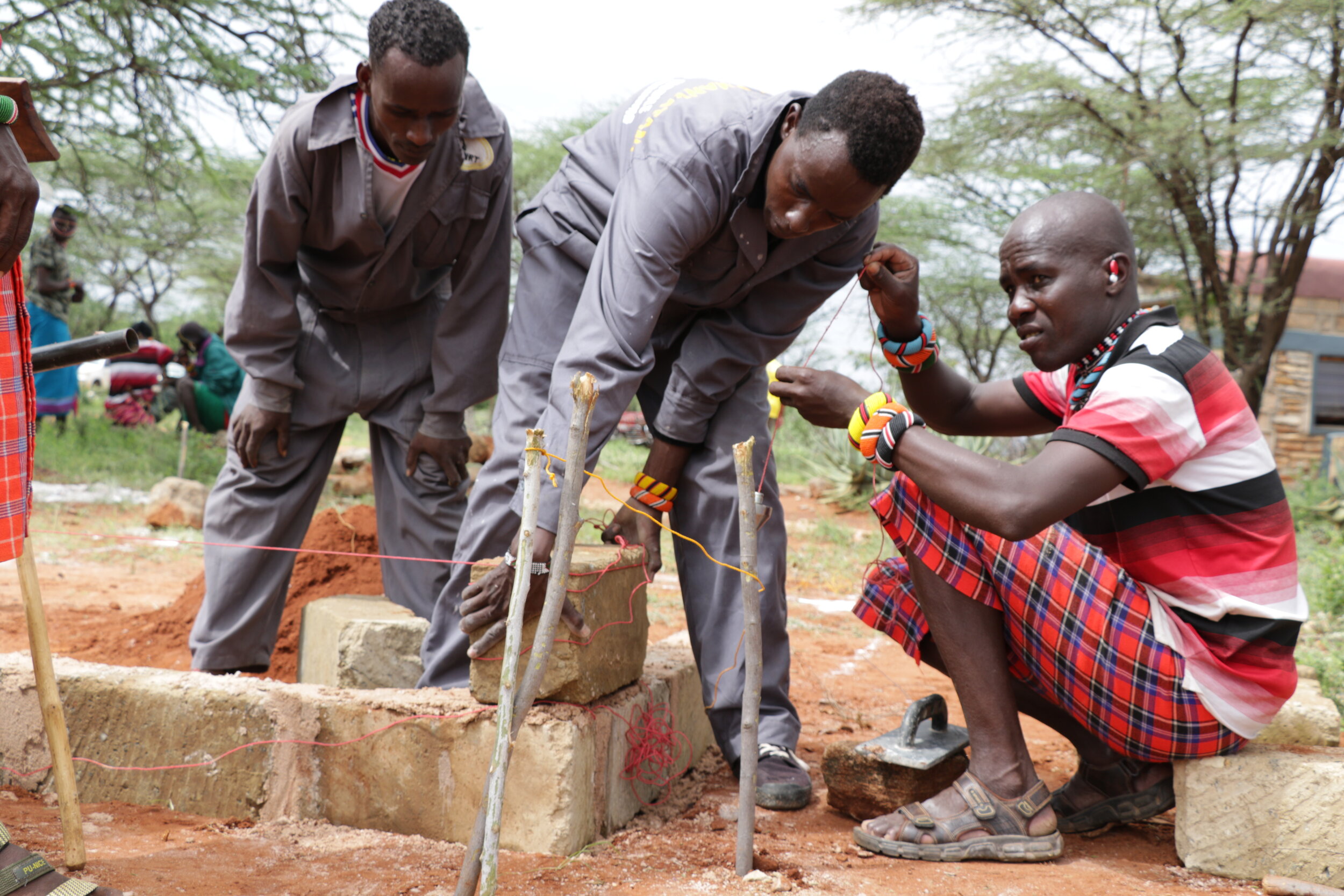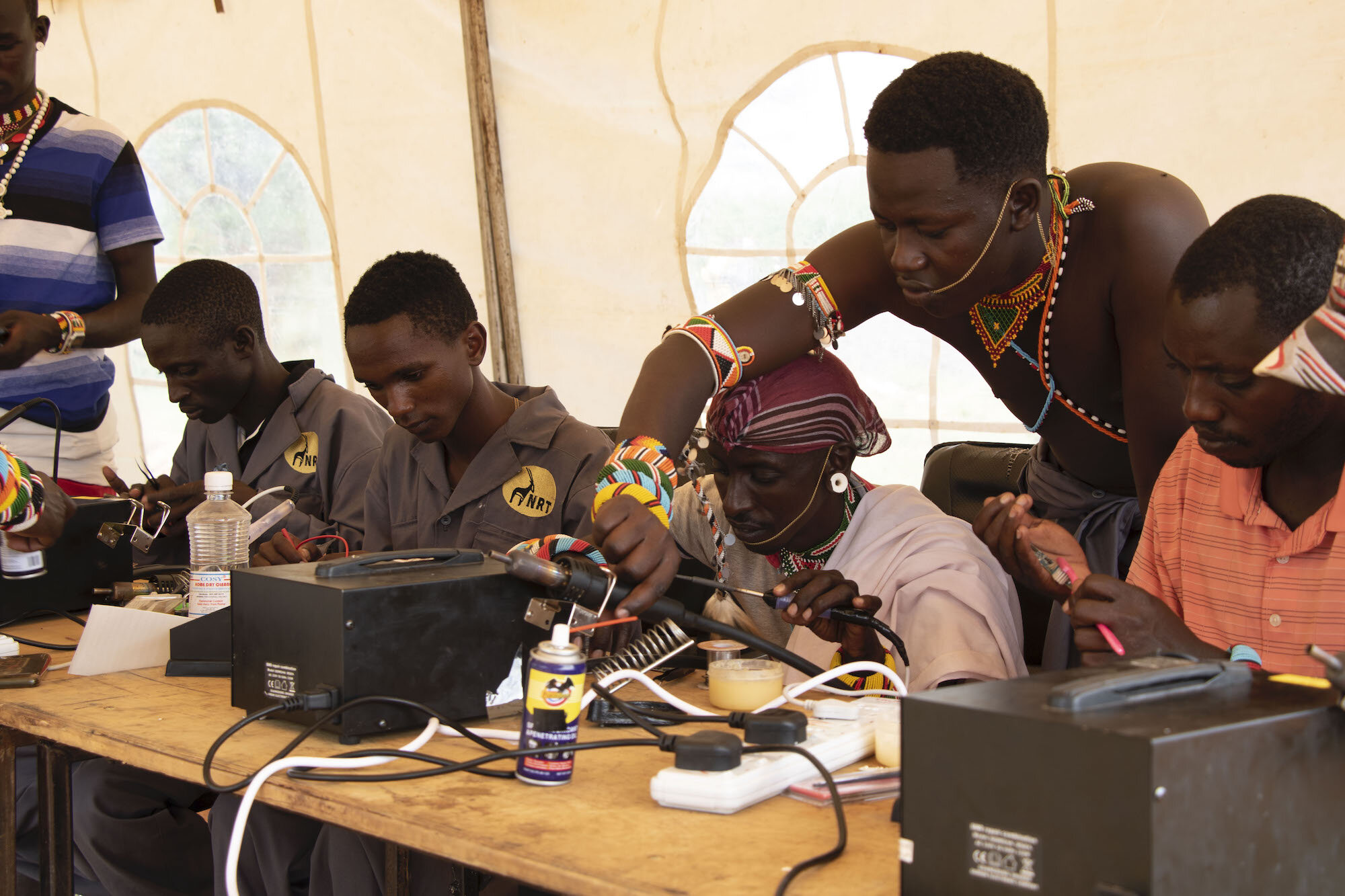Bringing the Classroom to the Field; New Mobile Vocational Training Programme Tailored to Pastoralists
Young warrior Lobore Lekanta cannot read or write, and never received a formal education. He has spent most of his life herding his family’s livestock across the rangelands of northern Kenya – following in the footsteps of his father, his grandfather, and the men before them. Navigating a landscape fraught with challenges - conflict with other herders over scarce resources, degraded grasslands, unpredictable weather - was getting harder each year, but Lekanta saw no other options for an illiterate, rural pastoralist.
It was that same young man that stood in front of Kenya’s Principal Secretary for the State Department of Vocational and Technical Training (TVET) on the 30th November 2019 to receive his graduation certificate in masonry, welding and motorcycle mechanics. “This is a dream that had never crossed my mind,” he said at the ceremony afterwards, “I’m a different moran now!”
Lekanta was one of 58 young warriors to graduate from the pilot vocational training programme Ujuzi Manyattani, supported by NRT and the Embassy of Sweden under the IMARA Program Consortium.
Ujuzi Manyattani aims to provide mobile, village-based vocational training to people in community conservancies by partnering with polytechnic institutions. It is a response to a wider drive by community conservancies to diversify indigenous livelihoods and encourage entrepreneurship amongst women and young morans.
Proposed by community conservancies and designed by NRT Trading’s Community Economic Empowerment team, the programme is tailored to the demands and lifestyles of the pastoralists it aims to serve. Courses in mechanics, masonry, mobile phone repairs, welding and carpentry were all chosen by the pilot students as the most useful skills to learn. They created their own timetable, allowing for morning and evening livestock duties, and market days.
“The integrated mobile vocational training model enables pastoralists to acquire practical vocational skills where other training facilities are absent, without disrupting their way of life,” said NRT’s CEO Tom Lalampaa at the graduation. “The programme will develop learners’ basic literacy and marketable entrepreneurship skills to aid business activities.”
Teachers from Kiirua Technical Institute and Laikipia North Technical and Vocational College led the course delivery, tailoring the lessons for an audience with around 80% illiteracy. Moving between Ltungai, Westgate and Nkoteiya community conservancies for this initial pilot, the teachers were as self-sufficient as possible – bring their own materials with them and using empty school classrooms, and even the shade of a big tree, as places to teach. Conservancies supported the teachers with accommodation and transport.
Demand for the graduate’s newly acquired skills became apparent as soon as they finished their courses. Before the graduation ceremony, a number of trainees had already started earning an income from their specialisms, including Lekanta. He was commissioned to make a bed and build a small structure in his village, which earned him Ksh.10, 000 (USD 100). Lokeno Toriepe from Ltungai didn’t waste time starting his business either, a motorcycle repair service that earned him Ksh. 10,000 in the first week. An entrepreneurial spirit will enable these young men to take advantage of existing opportunities in their communities, says Ture Boru, NRT’s Director for Community Economic Empowerment. “Ujuzi Manyattani will prepare communities for opportunities emanating from Vision 2030 projects and devolution, rather than remaining spectators in their changing economic landscape,” he said at the ceremony.
Boosting the local economy, reducing poverty and unemployed are all great and immediate benefits of the programme, says Lekanta, but Ujuzi Manyattani will have a wider impact in conservancies. “Ujuzi Manyattani will bring peace and coexistence between warring communities” he say. “We [morans] are now fully concentrating on making a living out of the skills we learnt rather than getting involved in livestock raids or conflict.”
In Ltungai Conservancy, morans from the Pokot and Samburu communities set aside a long history of conflict to study together in the programme, even playing mixed ‘after school’ sports matches.
During the launch, Principal Secretary (PS) in the State Department of Vocational and Technical Training (TVET) in the Ministry of Education Dr. Kevit Desai praised the initiative, saying that National Government would work with other counties to replicate the project among other pastoralist communities.
With a successful pilot now complete, NRT and IMARA will work to offer aftercare services to the graduates by offering start-up kit loans, vocational clinics, mentorship services and market linkages. The next phase of Ujuzi Manyattani will focus on different conservancies and indigenous groups.
